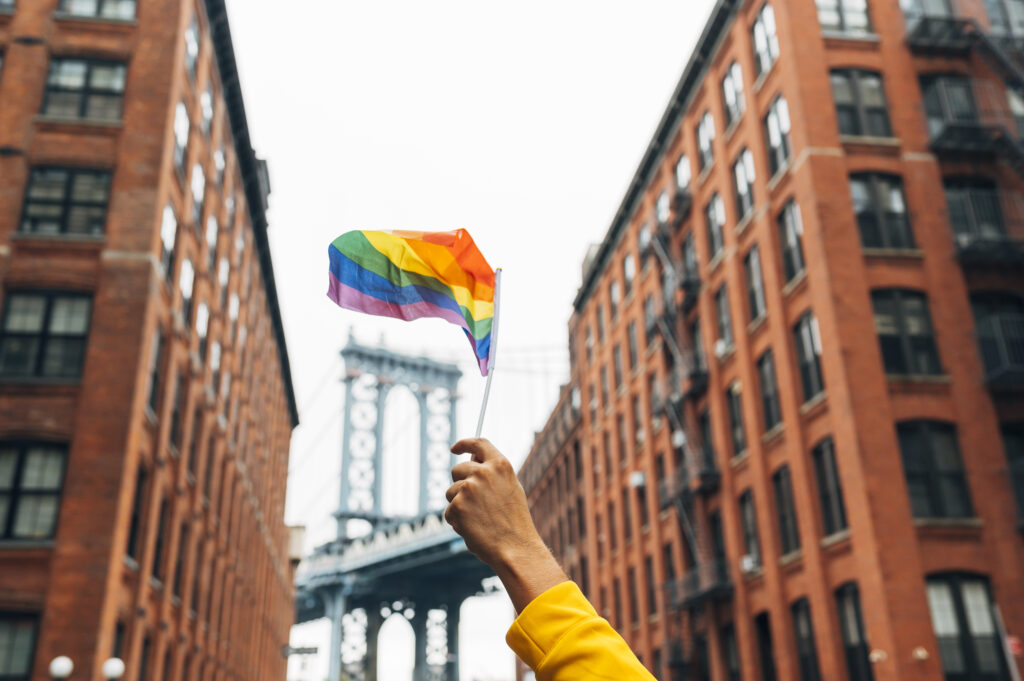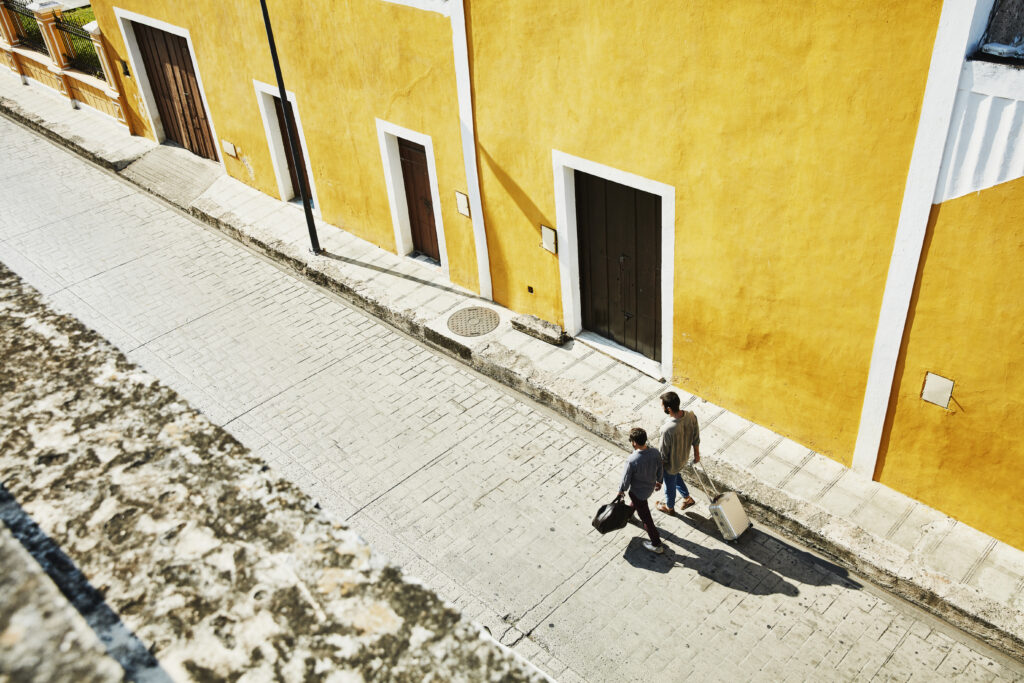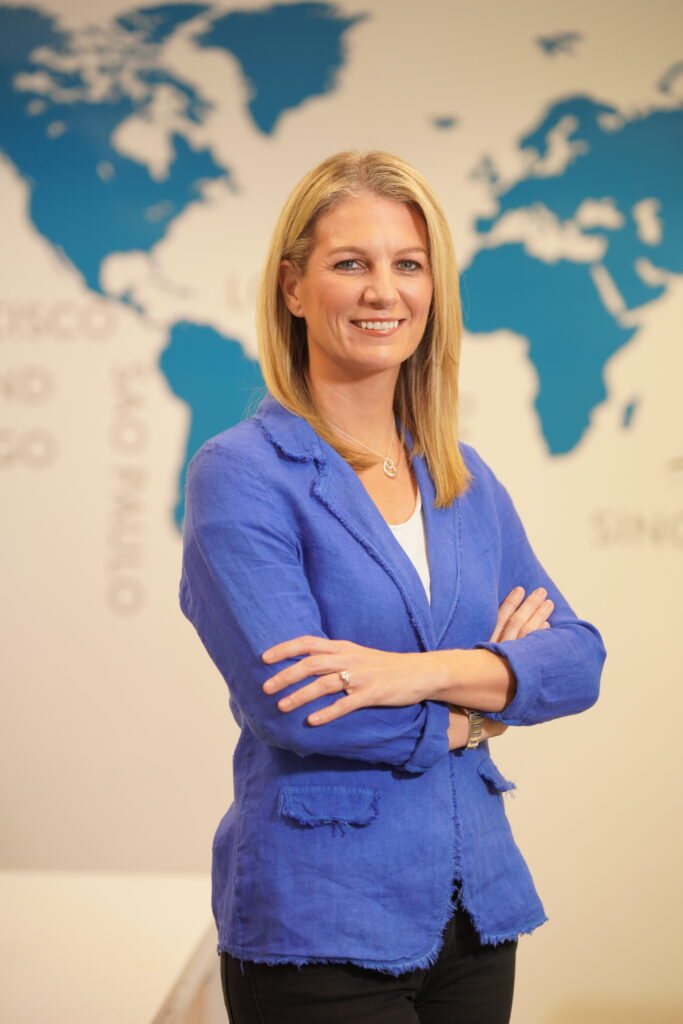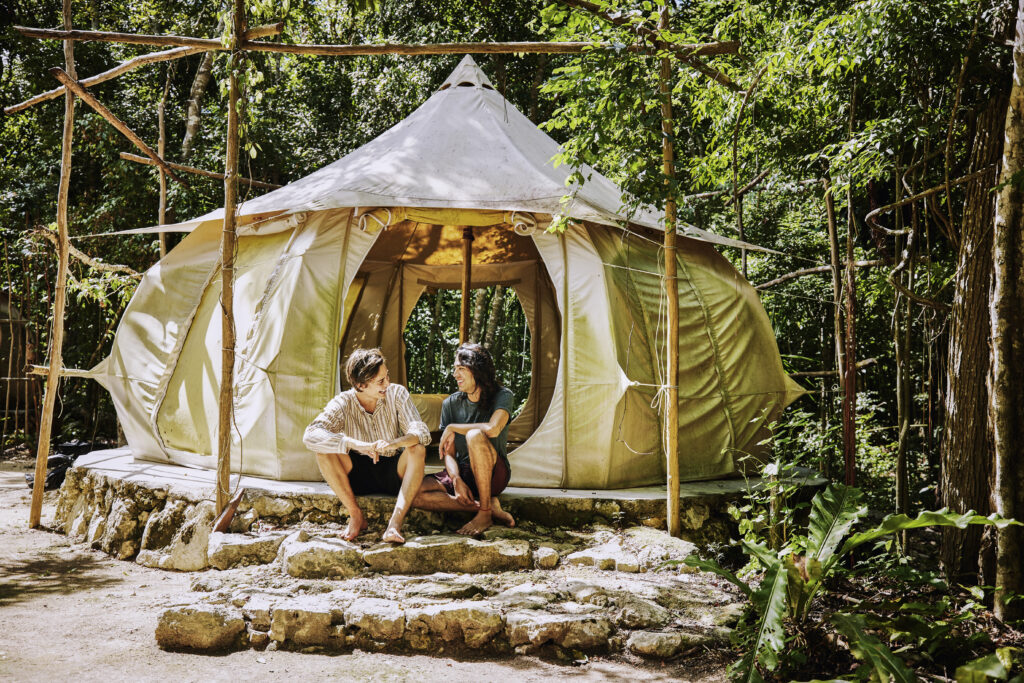How Booking.com’s Travel Proud initiative is making hospitality more inclusive and welcoming for LGBTQ+ travellers
In collaboration with LGBTQ+ training company HospitableMe, Booking.com is trying to erase pain points that the LGBTQ+ community has historically experienced.
18 March 2025
Share this exclusive content from Saladplate

Photo Credit: Booking.com
Discrimination, insecurity and self-consciousness are how some LGBTQ+ travellers have described their travel experience. In data released in 2024, Booking.com noted that more than half of LGBTQ+ travellers have experienced discrimination when travelling, while 56% agree that being LGBTQ+ has made them more insecure and self-conscious as a traveller.
Nevertheless, two in three believe that being their authentic self on a trip is important. So how is it possible to reconcile the two?
“Fortunately, most of the time, most LGBTQ+ members don’t experience difficulty travelling because of their sexuality or gender. But it’s very personal and local — and people who don’t conform to what locals expect men and women to look like more often have horrible experiences,” says Billy Kolber, co-founder of HospitableMe, an American-based company that offers inclusive hospitality training. “So many LGBTQ+ members fear what could happen — and rightly so, because when things go bad, it can ruin your trip and even threaten your safety.”
HospitableMe is Booking.com’s partner in Travel Proud, the platform’s inclusive hospitality training. Launched in 2021, Travel Proud provides free, inclusive hospitality training to help partner hotels understand the specific challenges faced by LGBTQ+ travellers. The training is available in 11 languages and has recently expanded to include Japanese and Thai.
“The idea for Travel Proud was born out of the recognition that LGBTQ+ travellers often face unique challenges and discrimination when booking accommodations,” says Laura Houldsworth, Managing Director, Asia Pacific at Booking.com. “While there may be differences in discrimination reported across the region, our 2024 LGBTQ+ travel research shows that over half (62%) of LGBTQ+ travellers from APAC have encountered barriers to feeling truly welcome.”

Photo Credit: Booking.com
Unique Travel Concerns
Booking.com’s mission has always been to make it easier for everyone to experience the world – and they believe this should be the case for all travellers including the LGBTQ+ community. However, their research showed that 30% of queer travellers fear judgement when they check into a hotel. They reached out to the International LGBTQ+ Travel Association (IGLTA) and HospitableMe to remedy this. Kolber recalls, “We were already delivering a hospitality-based curriculum Everyone Welcome, and it was clear from the first conversation that we would be great partners. We launched during the pandemic, and together, we have educated nearly 100,000 properties around the world.”
He also notes that while hospitality employees are often given a lot of mandatory training, most have never had a professional conversation about who LGBTQ+ people are and how that affects the way they are treated when they travel. “Travel Proud gives them the background and answers their questions (every one of those properties was trained in a live or live-moderated webinar). It gives them the tools to welcome LGBTQ+ travellers and to surprise and delight them.” He notes that from a profit standpoint, it can also be a powerful advantage in a competitive market.
Travel Proud training is organised into five main categories and is designed to be accessible and actionable. Broadly ,it covers who the LGBTQ+ community is, how they have been historically excluded when travelling and ways to be more inclusive. The five categories are language, gender, unconscious bias, customer pain points and how to help.

Laura Houldsworth, Managing Director, Asia Pacific at Booking.com | Photo Credit: Booking.com
Houldsworth notes that there has been strong engagement with the training in Europe, the Middle East and Africa (EMEA) as well as Latin America. “In APAC, the demand has been prevalent in destinations known for LGBTQ+ tourism such as Australia, which has the highest number of Travel Proud properties, followed by Thailand. Additionally, the demand is growing in regions where travellers actively seek signals of safety and acceptance,” she says. She notes that since 2024, there has been a 45% increase to the number of properties globally, which has been promising. There are also Travel Proud properties in Cambodia, Taiwan, Japan and South Korea.
The stories that have come out of the program are quite inspiring. “I’ve heard from a traveller how their chosen property’s Travel Proud status provided them a sense of comfort and reassurance even before they arrived,” says Houldsworth. “To me, this is a powerful testament to how the programme fosters an all-inclusive experience – particularly for those who may have reservations about how their stay would unfold due to negative experiences in the past. We’ve also heard from partners about the significant impact the Travel Proud programme has had on their properties. One highlighted that the certification wasn’t just about a label – it was about ensuring every guest from any background and diversity always felt respected and safe in their property.”
Kolber adds that the training can be powerful, even for those undergoing it. “From our personal experience delivering the training, we frequently hear from people who have queer people in their families who felt empowered by the training to talk to their family members, sometimes after a long estrangement. We’ve had a few people come out to their colleagues during our training, which is the best feeling – to have created a space where people feel comfortable and empowered to do that. And we frequently hear from LGBTQ+ people who learned something new in the training, even though they’re members of the community.”

Photo Credit: Booking.com
Travelling Without Fear
“I’ve had negative experiences staying in hotels in the past, whether that’s being made to feel uncomfortable with my choice of outfit or being told that we would have to have separate beds,” says LGBTQ+ travel writer and content creator Callum McSwiggan, who is also a Travel Proud ambassador. “That’s why I now always look for the Travel Proud logo when travelling. It makes me feel at ease knowing that I don’t have to worry about hiding my identity and that I can wholeheartedly be myself. I’ve had countless positive experiences ever since – a favourite memory being my stay at Kaimana Beach in Hawaii. They made me feel so incredibly welcome, from checking my pronouns at check-in, to leaving an LGBTQ+ magazine on the coffee table in my room. It made all the difference and will mean I’ll go back and stay with them time and time again.”
Kolber believes this is the biggest win for the program. Prior to this, it was always hard to know how comfortable LGBTQ+ guests were at a hotel. “In the nineties, we used to call small hotels and ask “Does your property have experience with gay and lesbian couples, and would you describe it as a welcoming place for them?” — and many of them would not be a welcoming place.” LGBTQ+ travellers would usually have to look for clues on a property website or reviews, such as a review from a guy talking about his husband, a guest talking about visiting for Pride, or an image of a same-sex couple anywhere on the site. While it can be difficult when encountering individuals and not knowing their personal beliefs, Travel Proud indicates that management is proactive about welcoming LGBTQ+ travellers. “It may not sound so significant, but it’s huge for LGBTQ+ travellers,” he says.
It boils down to respecting and understanding an individual’s travel experience, with Kolber noting that while Travel Proud is focused on the LGBTQ+ community, the training and strategy can easily be applied to people of any historically undervalued travel segment. “Remember that sometimes you have to do things a little bit differently to treat everyone equally.” Booking.com has also gone beyond the training program by using inclusive language across all touchpoints, such as removing gendered titles during booking and offering a wider range of gender options for customer profiles. Adds Houldsworth, “Our customer service team is available 24/7 to assist LGBTQ+ travellers with any concerns they may have during their stay, ensuring a welcoming experience at all stages of their journey.”
“True hospitality exists in the connection between people – especially people of different cultures and backgrounds,” says Kolber. “That’s where the magic of travel has always lived. Travel Proud is making travel better by supporting personal connections when we travel. We are so proud to be the partner powering that.”
Author: Karen Fong
Karen Fong is a Singapore-based writer and editor who has previously spent time in Hong Kong, Shanghai and Canada. She writes parenting, lifestyle and travel content and has worked with publications including The Singapore Women’s Weekly, DestinAsian, Travel+Leisure Southeast Asia and Prestige Hong Kong.



